Welcome to Today in Slovakia – your Thursday briefing with the top news in one place.
Cecilia is gone. The Culture Ministry says she is safe
There was drama in Levoča, eastern Slovakia, and for once it didn’t involve politicians. A marble bust, likely sculpted by Renaissance great Donatello himself, was quietly whisked away from the depository of the Spiš Museum on Thursday morning, destination unknown.
First reported by Aktuality.sk, the operation reportedly took place around 9:00 and was accompanied by an armed unit, according to a museum source speaking to Korzár. Among those present: Lukáš Machala, a conspiracy-peddling Putin admirer and the Culture Ministry’s secretary general, widely accused of dismantling Slovak culture.
Local television cameras captured the moment, but a publication embargo was imposed until the bust reaches its new (undisclosed) location.
High-value cargo: The artwork in question is believed to depict Cecilia Gonzaga and dates back to the mid-15th century. Art historian Marta Herucová first identified the piece years ago, but it was not until earlier this year that the public caught wind of the masterpiece’s true origins. Former museum director Mária Novotná told reporters in February that the bust had since been held under strict conditions in a secure depository, amid fears it would be removed from Levoča altogether.
Enter stage left: Those fears may have been well-founded. On March 1, a new museum chief, Ján Pavlov, was appointed in a closed-door process following the dismissal of previous director Dáša Uharčeková Pavuková. Pavlov claimed at the time that showcasing the bust would be a top priority for 2025. Pressed by Aktuality.sk about why he handed the bust over to Machala, Pavlov declined to comment, but confirmed the removal had taken place.
Culture Ministry speaks up: The ministry, via spokesperson Petra Bačinská, confirmed the bust’s transfer. The work is state property, she noted, and the museum lacked sufficient infrastructure to protect such a high-value cultural object. The National Museum, the ministry, and the national police coordinated the transfer to an undisclosed, high-security site. The police later confirmed they assisted the ministry at its request. Art logistics firm IGH-HS Art Services was also involved – though its director Igor Križ remained tight-lipped.
Locked away in Budmerice: Meanwhile, this is not the only cultural treasure hidden from public view. According to Progressive Slovakia MP Dana Kleinert, a rare 19th-century cast of Michelangelo’s Madonna and Child – one of just five in the world – is sitting behind closed doors at Budmerice manor. Since the Culture Ministry took over the site, the public has been barred access to the cast.
And the law? A 2015 decree states that relocating registered artefacts from their permanent location is only permitted for scientific research, professional care, exhibitions, or educational purposes – and only with committee approval.
Meanwhile, on Telegram… Machala broke his silence in a Telegram video late Thursday, declaring the bust was now “truly safe, protected at a top-tier location with police support”. He refused to name the location and said bluntly: “We won’t answer stupid questions from journalists or opposition MPs about where it is or why we moved it. We just want to protect it.” He also pushed back at social media rumours that he intended to “steal” the bust. “Are you so brainwashed by the media,” he asked, “that you believe a state official could smuggle out a 30-kilogram statue under the noses of a special police unit and deceive at least 15 people involved in the packaging and handover?”
Should it stay or should it go? Conservationist Jakub Huba, speaking at a February press briefing, was clear: the bust belongs in Levoča. He urged the ministry to allocate funds so it could be exhibited there, “where it contextually belongs”. The museum had planned to unveil the bust to the public this autumn in a secure setting within the local Minorite monastery, alongside an exhibition on the Csáky family – the bust’s original owners, who left Slovakia after the Second World War. The bust had survived looting and decades in a reformatory for girls before ending up in the museum’s collection in 1975.
Now, its next appearance is anyone’s guess.
MORE STORIES FROM THE SLOVAK SPECTATOR
Scandal: Slovakia’s central bank governor Peter Kažimír was found guilty of bribery but remains in office.
Fiscal feud: Employers pitch €6.5 billion in cuts without tax hikes, but PM Fico blasts plan as anti-welfare.
Waltz, words, wine: A palace operetta, a Gaza book talk, or a vineyard picnic – Bratislava’s best free culture in the coming days offers conscience, conversation, and community.
Cornish lexicon: In our Spectator College podcast, British teacher Jonathan Eddy shares why foreigners often stay in Slovakia and drops must-know Anglo-Cornish gems.
Tatras linked: After years of seasonal gaps, a new daily bus service is finally stitching together Slovakia and Poland’s High Tatras, making cross-border hikes and spa days a year-round affair.
What’s on now: From a caffeine-fuelled festival to a retro car rally and a blowout Iron Maiden gig, Bratislava is serving something for every taste.
If you like what we’re doing and want to support good journalism, buy our online subscription with no ads and a print copy of The Slovak Spectator sent to your home in Slovakia. Thank you.
SLOVAKS ABROAD
Reclaiming home
For years, Benjamin Demko straddled two identities, never fully at home in either America or the Slovak culture that shaped his family. Now, with his citizenship application in and a suitcase nearly packed, he is hoping to close a century-old loop and return to the country his great-grandfather left behind.
SILENT HEROES
Man seeks heroes who restarted his heart
After collapsing from cardiac arrest on a riverside walk in Bratislava, a Slovak man is now searching for the passersby and paramedics who brought him back to life. One helper has come forward via Reddit – but he is hoping to thank them all.
IN OTHER NEWS
Speaking at the Conservative Political Action Conference in Budapest, Prime Minister Robert Fico warned that scrapping the EU’s veto right and punishing sovereignty-minded states could become a “new Iron Curtain”. He argued that such steps would mark a departure from democracy and threaten the European project, urging respect for compromise and national autonomy. Fico also called for an end to the war in Ukraine through dialogue with all sides, including Russia. (TASR)
The prosecution has dropped charges against activist Peter Laťák, who had been accused by police over remarks made about Prime Minister Fico. Prosecutors ruled the charges unlawful. In mid-May, police charged the man with a shepherd’s axe because he allegedly threatened Fico in a video.
Slovakia’s parliament fast-tracked and unanimously approved an expansion of its short-time work scheme, allowing the state to help cover wages if companies face order shortages due to new US tariffs. Labour Minister Erik Tomáš (Hlas) described the move as preparation for a potential trade war between the EU and the United States, with the law to take effect immediately after the president’s signature.
Slovakia’s Interior Minister Matúš Šutaj Eštok (Hlas) sparked outrage after comparing convicted central bank governor Peter Kažimír to Milada Horáková, the Czechoslovak politician executed by the communists in the 1950s. He called Kažimír’s corruption case a “purely political process” and claimed that, in the 1950s, Kažimír would have been sentenced to death. Opposition MP Ondrej Dostál slammed the comparison as a “shameful insult” to victims of communist repression, accusing Šutaj Eštok of historical ignorance and political cynicism. Dostál also reminded the minister that Kažimír was a key figure in two populist Fico cabinets marked by corruption and democratic backsliding.
PM Fico has hailed what he calls a “massive boom” in the country’s defence industry, with ammunition production expanding rapidly and Defence Ministry goals reportedly 75 percent fulfilled. He reiterated that Slovakia will no longer donate weapons to Ukraine, though it remains open to commercial cooperation. Fico also called on NATO to link future defence spending increases with dual-use projects, such as hospitals, bridges and schools.
In 2024, Slovak authorities identified 43 victims of human trafficking, including 23 children aged between six and 17. Of the 22 underage victims with recorded gender, 21 were girls, all subjected exclusively to sexual exploitation. According to Interior Ministry spokesperson Matej Neumann, adult male victims were primarily exploited for labour, while women were most often trafficked for sexual purposes. (TASR)
President Peter Pellegrini on Thursday presented letters of credence to four newly appointed Slovak ambassadors at the Presidential Palace. Juraj Macháč will represent Slovakia in Germany, Michal Slivovič in Turkey, Pavol Pánis in the United Arab Emirates, and Jozef Migaš in Belarus.
FRIDAY WEATHER BRIEFING: Partly cloudy, with periods of overcast skies and occasional light rain in some areas. Afternoon temperatures will range from 19°C to 24°C, with some northern regions reaching only around 17°C. (SHMÚ)
HAPPY NAME DAY: 30 May is a special day for Ferdinand, so if you know one, don’t forget to send your warmest wishes. Všetko najlepšie!
WHAT TO EXPECT ON FRIDAY
Parliament continues its session: Lawmakers will debate amendments to the transaction tax, the Criminal Code, the Judicial Academy Act, the Bankruptcy and Restructuring Act, and legislation concerning judges and lay judges. No votes will take place on Friday; the next voting session is scheduled for Tuesday, 3 June.
President Peter Pellegrini continues his official visit to Montenegro.
Statistics Office to publish several reports, including average fuel prices in Slovakia (Week 21), organised tourism in 2024, housing price indices for Q1 2025, and population data as of 31 March, 2025.
“Housing is a Human Right” cultural festival takes place: Organised by the NGO Stopa Slovensko, the Friday event aims to raise awareness about ending homelessness. Venue: Pink Whale boat, Bratislava.
Festival Divné veci (Weird Stuff) kicks off (30 May–8 June): This international site-specific theatre festival takes place at various locations around Bratislava.
Thank you for subscribing and reading. It means a lot to us.
P.S. If you have suggestions on how our news overview can be improved, you can reach us at editorial@spectator.sk.
Follow The Slovak Spectator on Facebook, LinkedIn and Instagram(@slovakspectator). For news from Slovakia in Ukrainian, click here or follow Novyny on Telegram, Facebook, and Instagram.


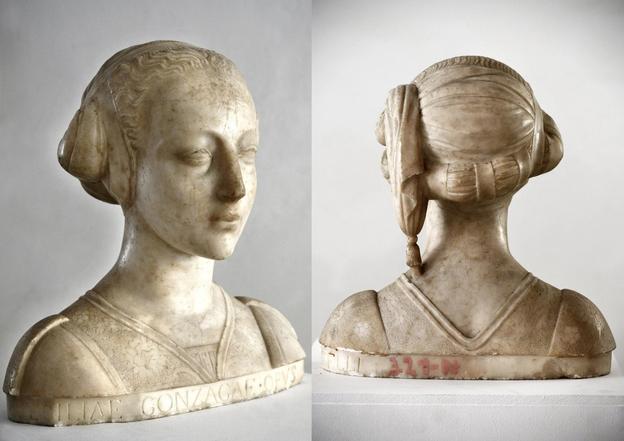 A marble bust believed to depict Cecilia Gonzaga is thought to be the work of Renaissance master Donatello. (source: Peter Župník)
A marble bust believed to depict Cecilia Gonzaga is thought to be the work of Renaissance master Donatello. (source: Peter Župník)
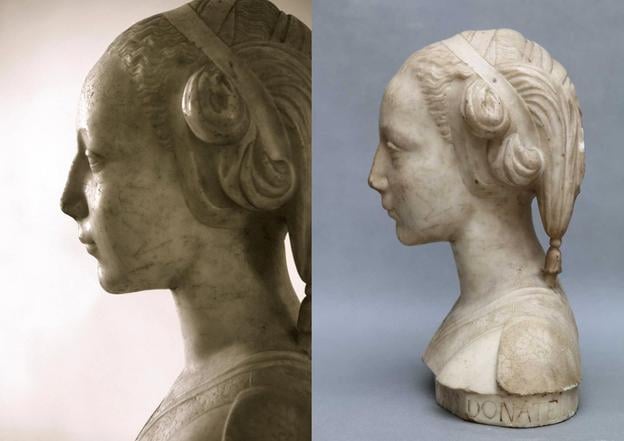 A marble bust believed to depict Cecilia Gonzaga is thought to be the work of Renaissance master Donatello. (source: Peter Župník)
A marble bust believed to depict Cecilia Gonzaga is thought to be the work of Renaissance master Donatello. (source: Peter Župník)
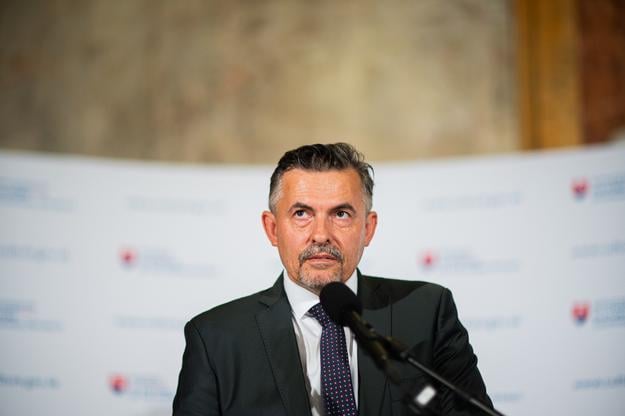 Lukáš Machala (source: Sme - Marko Erd)
Lukáš Machala (source: Sme - Marko Erd)
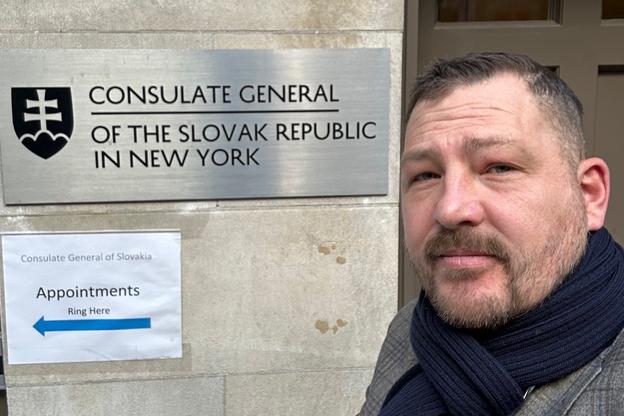 Benjamin Demko (source: Archive of B. D.)
Benjamin Demko (source: Archive of B. D.)
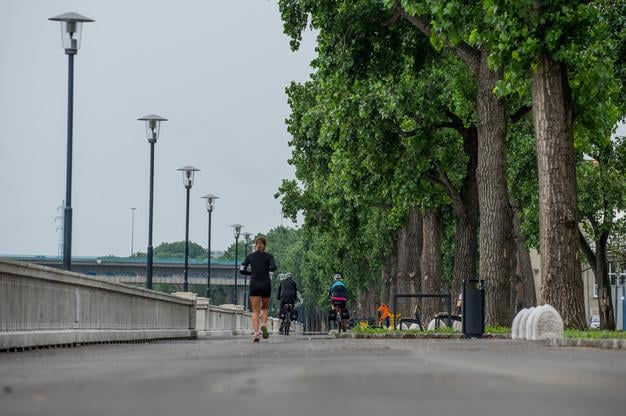 The Danube promenade in Bratislava (source: TASR - Michal Svítok)
The Danube promenade in Bratislava (source: TASR - Michal Svítok)
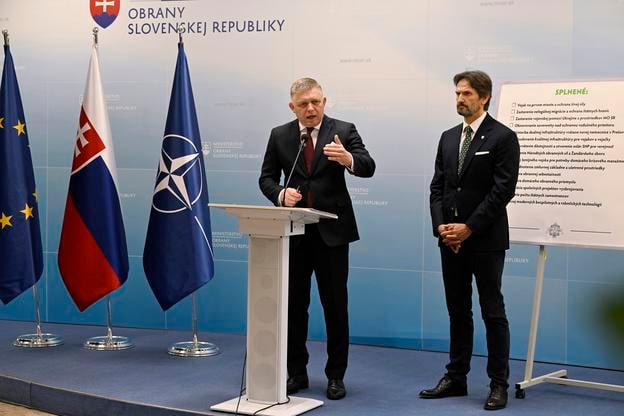 Prime Minister Robert Fico and Defence Minister Robert Kaliňák (both SMER) during a press conference following an inspection visit at the Defence Ministry in Bratislava on Thursday, 29 May 2025. (source: TASR - Pavel Neubauer)
Prime Minister Robert Fico and Defence Minister Robert Kaliňák (both SMER) during a press conference following an inspection visit at the Defence Ministry in Bratislava on Thursday, 29 May 2025. (source: TASR - Pavel Neubauer)
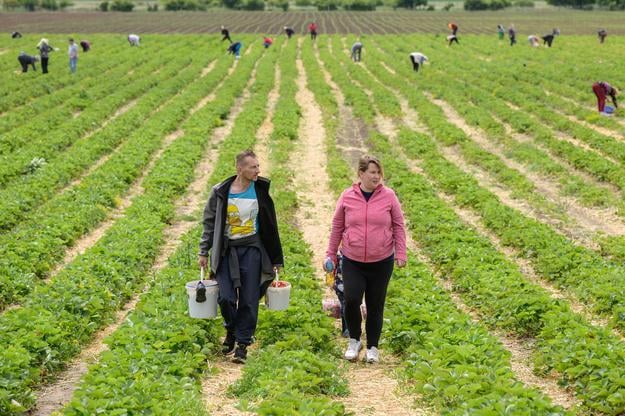 Pick-your-own strawberries in Žabokreky nad Nitrou, Partizánske District, on Thursday, 29 May 2025. (source: TASR - Henrich Mišovič)
Pick-your-own strawberries in Žabokreky nad Nitrou, Partizánske District, on Thursday, 29 May 2025. (source: TASR - Henrich Mišovič)